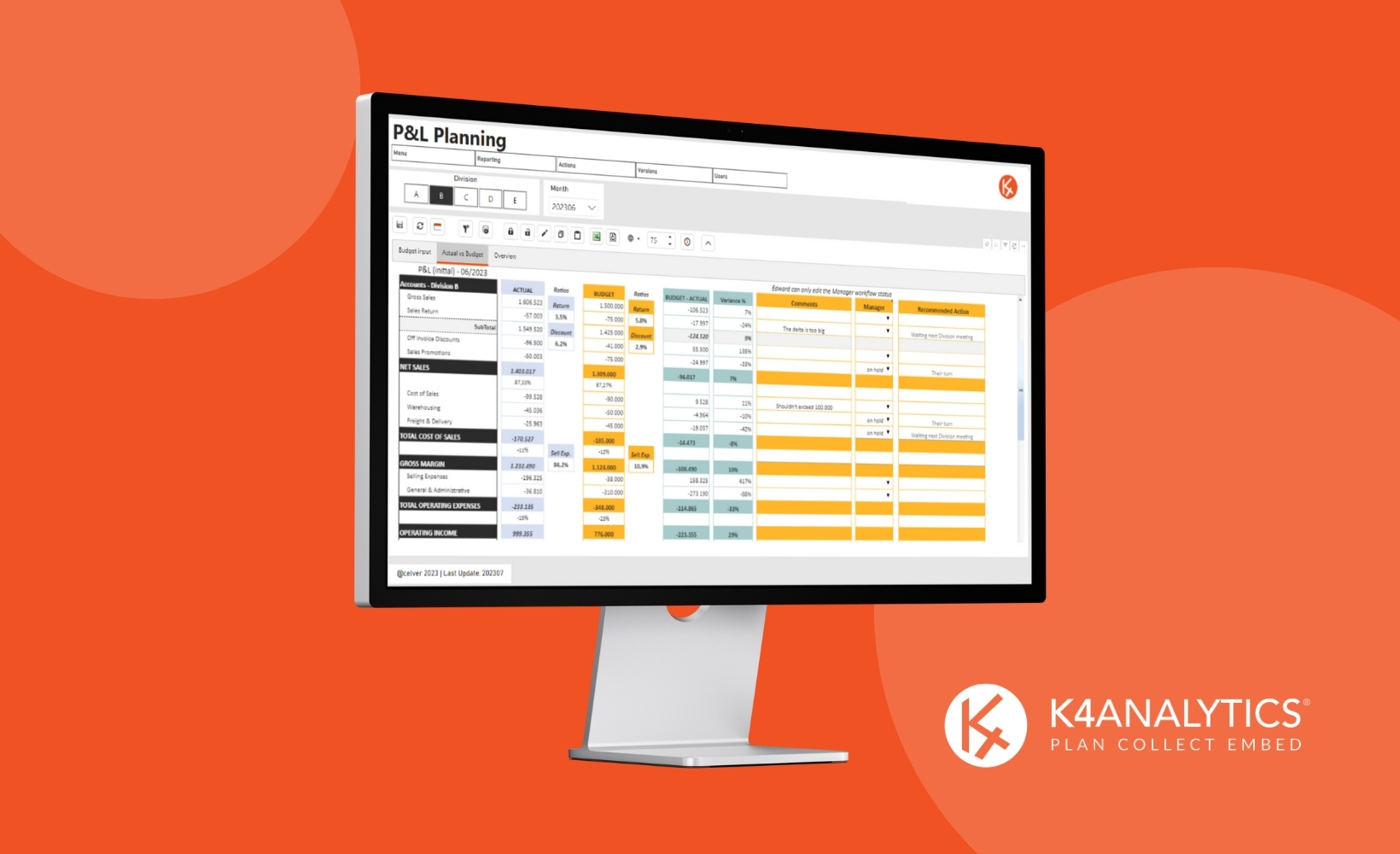Time and money. If we were to carry out a market survey and ask finance directors, entrepreneurs or heads of accounting departments what the two most important resources of a business are, a good number of them would give us that answer.
The profitability of any business rests on the efficient management of both. Therefore, it is not surprising that optimal financial planning and analysis is a real obsession for many in their day-to-day work.
Nowadays, there are several methodologies already in place, technological advances and tips such as the ones we offer here that can help you and serve as a reference.
Why is financial planning important?
First of all, let us dwell on the key concept around which this text revolves: financial planning and analysis (FP&A).
In business, what do we mean when we hear or read about it? Is it a term that belongs exclusively to the business world? And, above all, why is it so important?
These are all questions that help to understand the relevance and why so many people care to know more about the concept.
From the answers we give to these basic questions, we will discuss how to optimize financial planning and analysis in a company.
Financial planning refers to the strategies that are defined in any company to achieve a set of goals. Obviously, these objectives must be quantified in order to be able to prepare the planning. In order to quantify them, it must be taken into account that the objectives must:
- Include the costs that will be involved in implementing each action.
- Provide estimates of the revenue they will bring in.
- List the different financial resources that will be needed to achieve the objectives.
- Set the timeframe in which the actions will be carried out and in which the effects of the actions will be seen. These can be short, medium or long term.
With these guidelines presented, a forecast could be made, in this case, at a financial level, of how the cash flow of a business is going to be depending on the measures proposed.
The truth is that it is essential for the economic survival of any organization. This is where the great importance of good financial planning and subsequent analysis lies. It will not only be enough to plan, but it will also be necessary to measure and know the results in order to subsequently correct and/or continue with this planning.
5 tips for financial planning of a company
Planning and analysis are not new. Businesses have existed since the beginning of time. Consequently, expenses, income, taxes and so on have gone hand in hand with it constantly. And in the area of personal finance, too.
However, different factors have made accounting indispensable and fundamental for any organization. We are talking, for example, about specialization and professionalization, which are elements that have led many organizations today to need specific departments for finance and accounting.
The goal? To control the financial health that sustains the business by monitoring and planning any economic aspect that affects the organization. Each one works on these aspects with its own methodology, although there are key elements that appear in all types of efficient financial planning.
Here are 5 tips for the financial planning of a company:
1. Start with real data
When it comes to good financial planning, you have to be realistic. Know what limitations of any kind the company has and what resources it has available.
The accounting and financial data used must be accurate and, above all, truthful. This is the best way to avoid inaccuracies and errors from the outset.
2. Set coherent and accountable deadlines and targets
When setting objectives, they should be consistent with the company’s financial possibilities.
They must also be measurable in order to assess how the actions undertaken are working.
To this end, it is important that the person in charge or the entire team in charge of each action is involved and knows about all the projects that the company is carrying out and how they can impact on the planning.
3. Making and including concrete assumptions is very useful
Good financial planning is based on ideas, not on certainties, especially when it comes to forecasting sales and costs. In this sense, it can be very useful to establish in the planning itself a series of hypotheses for each of the actions to be carried out.
They will be a good tool to get closer to reality and, subsequently, to know exactly how the actions will work and how the market will behave.
4. The importance of regular reporting
In order to monitor how the strategy is evolving and to obtain a good financial analysis, it is essential to obtain and work with accurate information from the financial statements.
To see how the actions are evolving in terms of income, costs, cash flow… Also to detect what financing needs are arising. For all of this, it is key to work with results reports, both periodically and annually.
5. Relying on technology today is crucial
The typical Excel and spreadsheets, conventional ledgers or basic office software are tools that have traditionally been used to good effect.
However, new technologies allow companies to have more efficient and practical software. They store and manage vast amounts of information and data of all kinds. For this reason, they are very useful for carrying out the most in-depth and accurate financial planning and analysis.
In short, the automation of management control processes or any other type of process in a business, if done correctly, always brings benefits. It happens in every business and usually generates considerable savings of valuable resources. When it comes to making a strategy that positively impacts your finances and their subsequent measurement, it does too.
At Holistic Data Solutions we implement both economic and financial planning processes, with the aim of making a financial budget no longer a problem but a key process at a business level, involving the entire business and automating a large part of its calculations.
Related Articles
In a context like the current one where financial instability and market volatility are so present, it is normal that [...]
Board International was founded in the 1990s with the aim of being a Self-Service Analysis and Reporting, which goes through [...]
Finance is a vital area for any company. In a context marked by instability and volatility, it is more important [...]
















